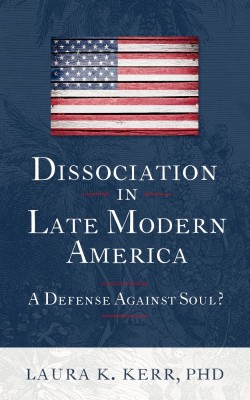The Indian union of Shiva and Shakti (also known as lingam and yoni), along with the Chinese Yin-Yang, show the power of love resides in joining opposites. Love overcomes antagonism and dualism, dissolving difference in a complimentary and binding whole.
In Plato’s Symposium, Aristophanes gave a similar account of love. He told the myth of three sexes: male, female, and the androgynous mixing of the two. The latter unabashedly used their strength to attack the gods. To diminish the third sex’s power, Zeus severed them into two, thereby dooming each to search for its other half, forever “longing to grow into one.” CG Jung internalized this drama. He described the pursuit of psychological wholeness as the integration of the feminine and masculine aspects of psyche. He saw psychological integration as a continual process of overcoming the dualistic split between conscious ego and the unconscious, all-encompassing sense of Self (which the ego, in its quest for perfection, tends to resist). In Answer to Job, Jung wrote:
“Perfection is a masculine desideratum, while woman inclines by nature to completeness.”
If you can get beyond Jung’s antiquated notions of the masculine and feminine (which can be hard to do), there is value in identifying a psychological tension between perfection and completeness. Examining this tension sheds light on how we love others and practice self-love, and highlights how we unwittingly construct barriers to letting in the love we need. Jung goes on to write:
“Perfectionism [by itself] always ends in a blind alley, while completeness by itself lacks selective values.”
Yet when joined, the two halves unite in a dynamic quest: whatever drives us becomes balanced by a wider (and often wiser) understanding of how our actions impact others. In the practice of love, this dynamic is seen in the need to balance autonomy with commitment, self-love with love for the other.
For Jung, Eros represented the feminine aspect of psyche, a term often associated with love, but more generally understood as relatedness. In Answer to Job, Jung connected Eros with Sophia, whom he identified as Yahweh’s handmaiden in the creation of Earth. Sophia was originally recognized as the fountainhead of wisdom. Her name is part of the etymology of the word philosophy—philo-sophia translates to “the love of wisdom.”
Today few worship the goddess Sophia, just as it is uncommon to divide the psyche into masculine and feminine parts. Instead, the notion of goodness overlays ideas of perfection, while the idea of completeness is debased as a lack of values and sometimes even associated with evil (what Jung identified as a reversal in meaning), much as feminine qualities and women have been devalued and scapegoated over the millennia.
In Answer to Job, Jung challenged the idea of Yahweh as perfect and all good. He wanted to show the goal of perfection, which is witnessed in Yahweh’s desire for perfect faith from Job, not only lacked insight, but also was cruel.
“The lack of Eros, or relationship to values, is painfully apparent in the Book of Job….Yahweh has no Eros, no relationship to man, but only a purpose man must help him fulfill…. The faithfulness of his people becomes more important to him the more he forgets Wisdom [Sophia]…. Against his own convictions Yahweh agrees without any hesitation to inflict the worst tortures on him [Job]. One misses Sophia’s “love of mankind” more than ever. Even Job longs for the Wisdom which is nowhere to be found.”
Job’s affliction lives on. In the pursuit of goodness and avoidance of evil, perfection has become a laudable goal. But perfection desiccates relationships and goads personhood into a project perpetually measured by unattainable ideals. This drive for perfection — including perfect love — inhibits love’s transformative power, much the way Yahweh’s lack of insight kept him from recognizing his cruelty and absence of Eros when testing Job’s faith.
Truly loving another requires finding the courage to trust love’s transformative power. And perhaps we all must first join the “good” and “evil” in ourselves — and survive all the messiness and uncertainty that entails —before we can fully trust love and risk dissolving into another.
Reference
Jung, C. G. 1958/2011. Answer to Job. Translated by R.F.C. Hull, Bollingen Series Princeton: Princeton University Press.
© 2015 Laura K Kerr, PhD. All rights reserved (applies to writing and photography).
Written By Laura K Kerr, Ph.D
A Meditation on Love was originally published @ Laura K. Kerr, PhD and has been syndicated with permission.
Sources:
Our authors want to hear from you! Click to leave a comment
Related Posts






Laura,
So glad to see you on SJS! great blog post